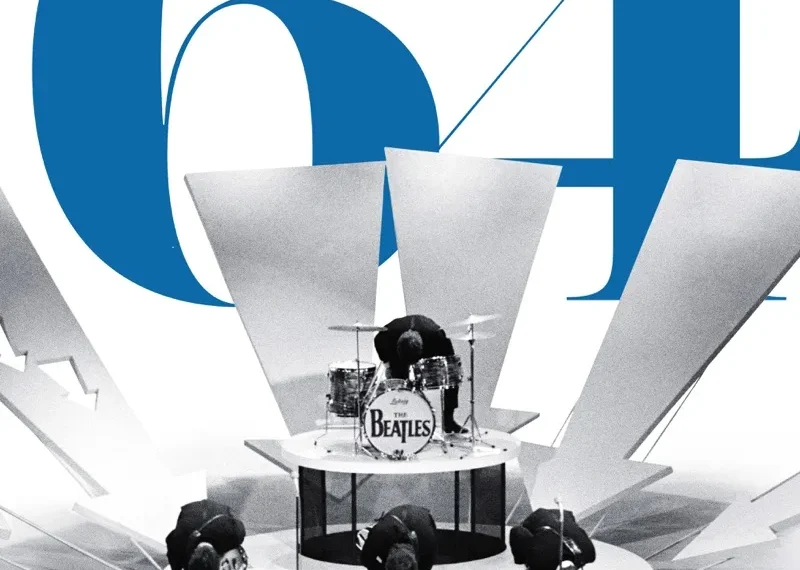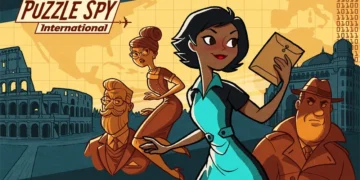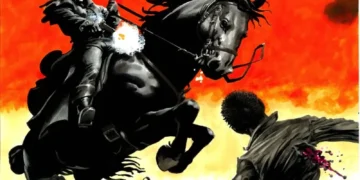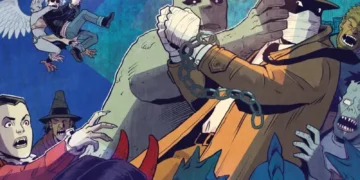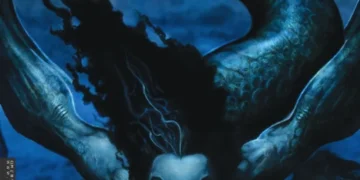Cast: Paul McCartney, John Lennon, Ringo Starr, George Harrison
Genre: Documentary, Music
Director: David Tedeschi
Streaming on Disney+: 29th November 2024
The world may not be clamouring for another Beatles documentary any more than it’s eagerly awaiting a live-action remake of Moana. Still, Disney has never encountered a beloved cultural artefact that couldn’t be mined for content. So, after Peter Jackson’s The Beatles: Get Back became the Thanksgiving streaming sensation of 2021, another meticulously restored dive into the band’s history is set to debut on Disney+. This latest effort, titled Beatles ’64, is directed by David Tedeschi, a longtime collaborator of Martin Scorsese and editor of George Harrison: Living in the Material World, with technical contributions from Jackson’s WingNut Films. While far shorter than the sprawling three-part miniseries that fans binged three years ago, Tedeschi’s 106-minute film adheres to a similar approach: it may not feel groundbreaking or essential, but nearly every moment is suffused with the thrill of uncovering something fresh and revelatory.
Like Get Back, Beatles ’64 zooms in on a pivotal chapter of the band’s history with microscopic precision, stretching a seminal moment in music lore until it seems to unfold in real time, both visually and sonically. This time, the focus is on February 1964, a watershed month when four young men from Liverpool landed in America and ignited a global phenomenon. Chronicling their whirlwind stops in New York City and Washington, D.C., the film captures how a concentrated burst of Beatlemania transformed into an unstoppable cultural pandemic.
Despite Tedeschi’s overwhelming focus on the legions of screaming teenage girls who seem to lose all composure at the mere thought of seeing John, Paul, George, and Ringo in person, the most striking element of his documentary lies elsewhere. Rather than depicting this hysteria as some cultural disorder, Beatles ’64 suggests it was, in fact, a salve for America’s deeper wound—the pervasive sorrow and disorientation that gripped the nation following the assassination of John F. Kennedy.
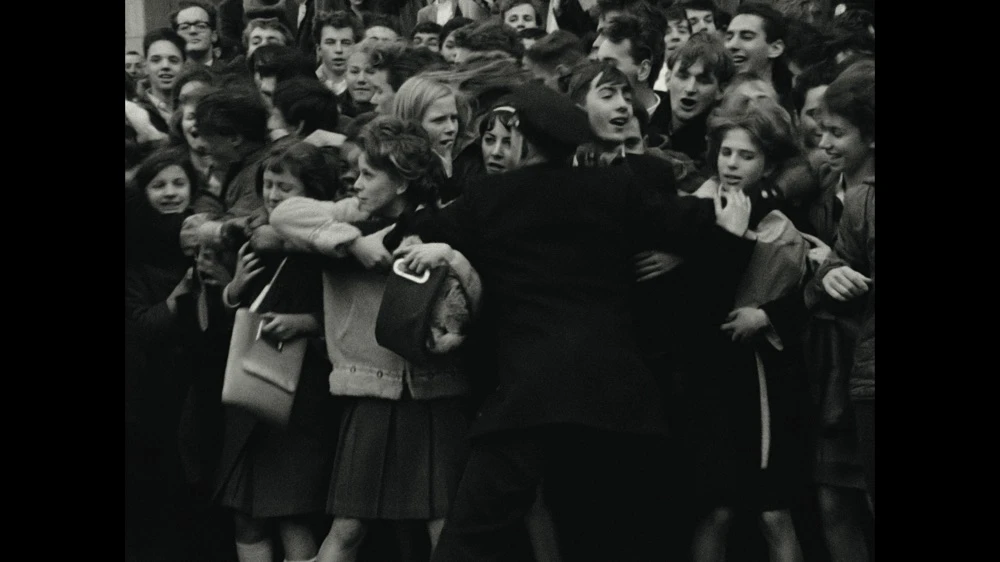
The documentary argues against the simplistic notion that the Beatles were merely pop icons or a fleeting phenomenon. Instead, Tedeschi frames them as the first “TV rock band,” drawing a compelling parallel between their rise and JFK’s legacy. It begins with an upbeat montage linking Kennedy to the power of television, labelling him “the first TV president,” a phrase that became tragically immortalised in the broadcast coverage of his death. By contextualising the Beatles’ legendary 1964 appearance on The Ed Sullivan Show—an event watched by an astonishing 70 million viewers and later mythologised as a cultural turning point—Tedeschi argues that the Fab Four did more than entertain. Their performance jolted a grief-stricken generation of Baby Boomers out of a collective despair, inspiring them to forge their own culture, for better or worse. If television had been the medium to deliver tragedy into their homes, it was also the medium that offered something hopeful in its wake.
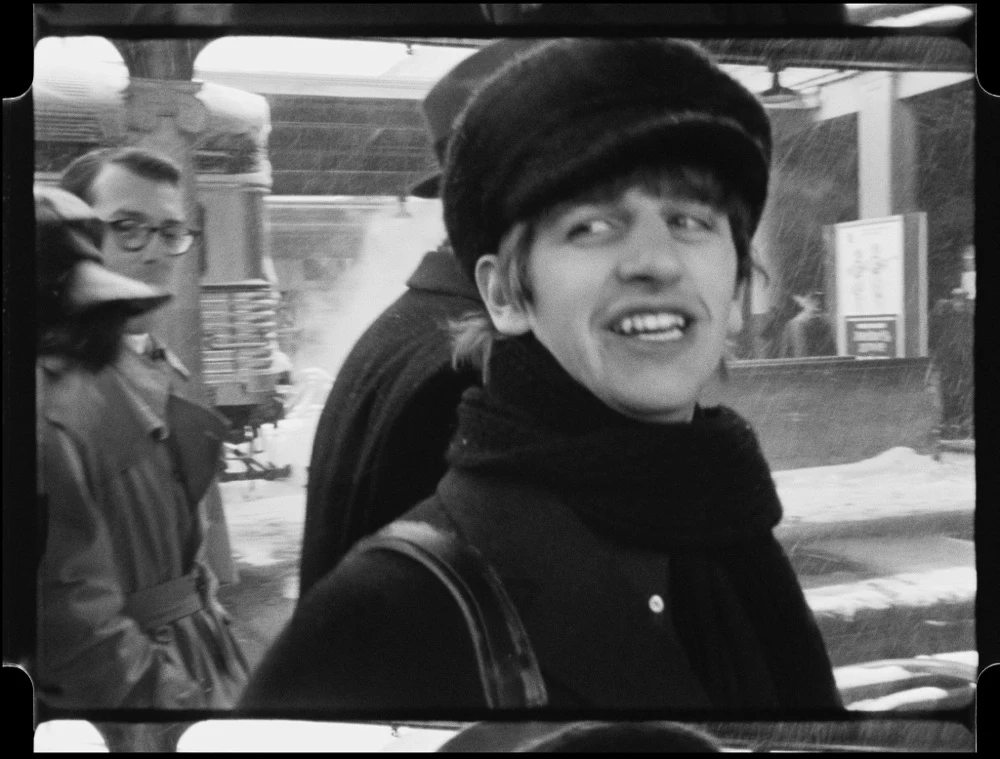
While a broad, overly academic exploration of this cultural shift might sound daunting, Beatles ’64 sidesteps such pitfalls by focusing on the raw energy of the moment. Tedeschi leans heavily on vérité footage originally captured by Albert and David Maysles, whose intimate, fly-on-the-wall perspective was first seen in their documentary What’s Happening! The Beatles in the U.S.A. This material, now restored in stunning 4K by Park Road Post, allows the film to capture the interplay between the chaos surrounding the band and the unshakable calm at their centre. Tedeschi amplifies this dynamic, showing how the Beatles’ preternatural coolness heightened the frenzy of their fans and how that frenzy, in turn, underscored their mystique. The result is a vivid, celebratory portrait of a cultural moment when music, television, and youthful exuberance collided to reshape the American psyche.
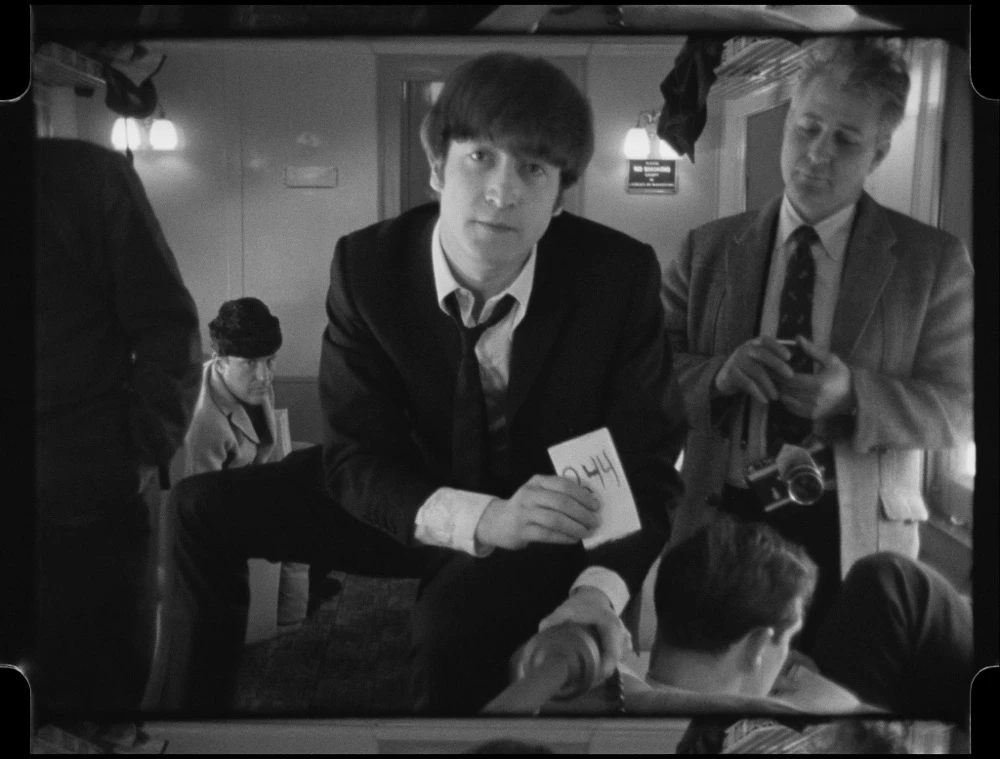
These Beatles aren’t divine, mop-topped deities descending from the heavens—they’re a group of working-class twenty-somethings who can’t help but find the hysteria surrounding them as funny as anyone else. Their first trip to Manhattan reveals them as sharp, witty young men having as much fun as possible amid the chaos. Clips from their iconic press conference show that their humour left an impression almost as powerful as their music, and while we see them deliver electric performances of early hits like “Please Please Me” and “I Wanna Hold Your Hand” over and over again, just as much of the film is spent on candid footage of the band relaxing in hotel rooms, cracking jokes, and playfully teasing interviewers.
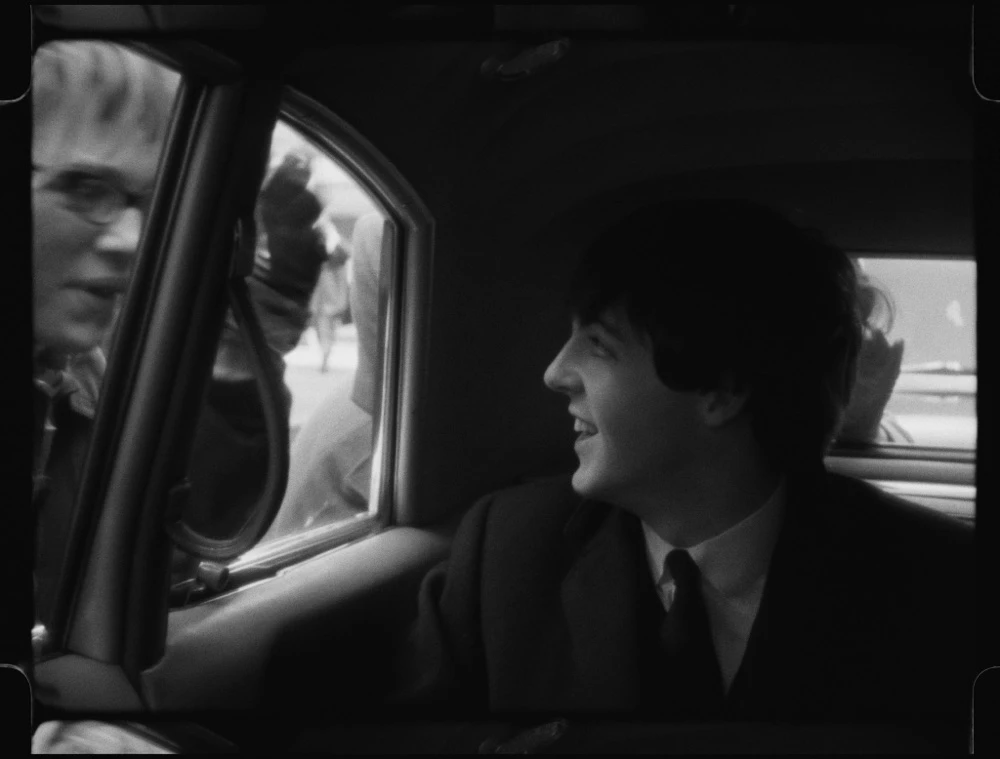
When a reporter asks Paul McCartney about his impact on Western culture, his head-shaking reply transcends mere humility—it captures a bemused incredulity. Were these young men heralding a new era of the 20th century, or were they the moment itself? Television’s immense reach made the question impossible to ignore, while its limitations made it impossible to answer fully. Tedeschi’s film leans into this tension, often feeling like a rerun of stories we know by heart, yet managing to generate a fresh kind of energy through that very friction.
This tension carries into the present day, as the film incorporates an assortment of talking-head interviews that fall into two broad categories. The first features Beatles fans—some famous, some not—reflecting on the band’s seismic cultural impact. The second finds surviving Beatles McCartney and Starr reminiscing with their signature humour: “lol, we played on a rotating stage in Washington, D.C., and Ringo’s drum kit started spinning the wrong way.” (Both McCartney and Starr are credited producers on the project.) In one delightful moment, David Lynch recalls attending that very show, his voice tinged with awe and wonder as if discussing the enigma of Twin Peaks itself.

The film zigzags between moments of profound cultural reflection and sheer absurdity. One minute, author Joe Queenan vividly remembers the first time he heard “She Loves You” (“it was like a light coming on in total darkness”). Next, Ringo cheerfully shows executive producer Martin Scorsese his collection of outrageously wild suits. A woman recounts how she and her friends bribed a hotel concierge for shreds of the Beatles’ bathroom towels, and moments later, Ronnie Spector laughs about sneaking the band up to Harlem so they could eat without being mobbed. While some of the newer interviews feel like unnecessary padding, Tedeschi intersperses enough Lennon and Harrison outtakes to remind us that the most compelling voices of the Beatles have already spoken—and done so better than anyone else.

Yet what sets Beatles ’64 apart is its focus on how ordinary people experienced the phenomenon. For every candid, unguarded clip of the Beatles themselves, there’s a moment even more revealing: fans and bystanders struggling to make sense of a cultural force they can’t quite grasp. Tedeschi captures the mania from every angle—up the hotel stairs, down crowded sidewalks, and inside homes where tween girls wheeled the family TV into the living room so they wouldn’t miss a second.
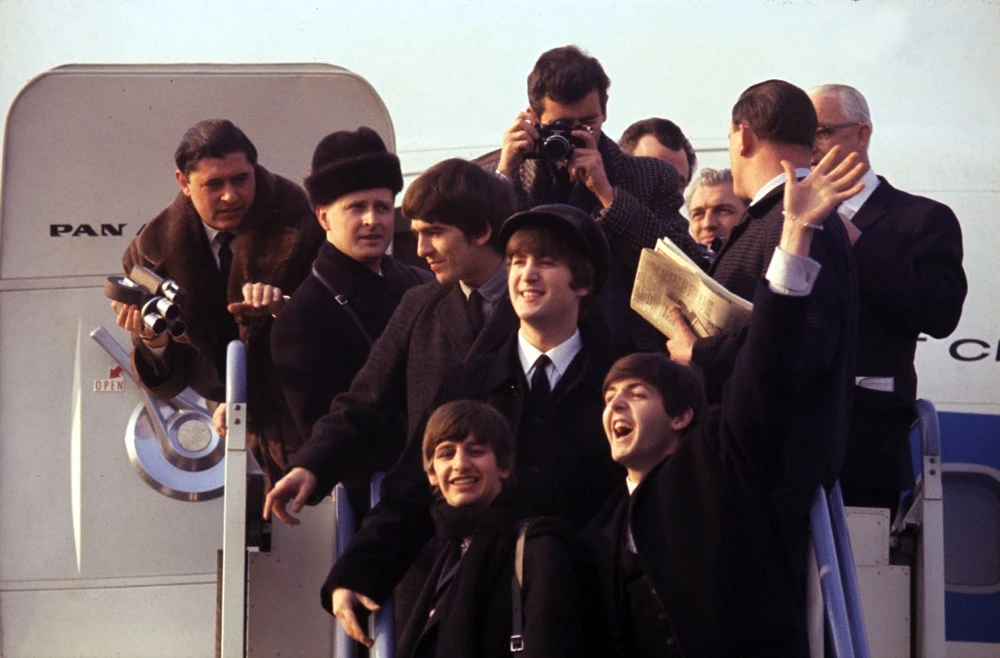
The much-anticipated climax—the Beatles’ performance on The Ed Sullivan Show—isn’t the film’s emotional peak. Instead, it’s the raw footage of enraptured kids watching the broadcast at home, their faces lit by the television glow. To drive home the profound connection between medium and message, Tedeschi cuts to media theorist Marshall McLuhan, whose words underscore what the moment already makes clear: the power of television was inseparable from the magic of the moment it transmitted.
As you stream Beatles ’64 on Disney+ the day after Thanksgiving, it’s hard not to feel McLuhan’s insights ring as true as ever. The Beatles weren’t just a band—they were a reflection of a medium and a moment that continues to resonate no matter how many times we revisit them.
Overall: 7/10

